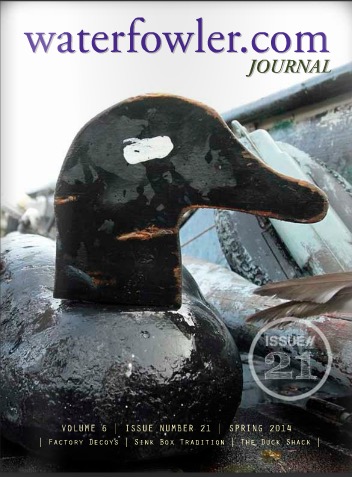
DOVER, DE – DNREC Fish and Wildlife Enforcement agents on marine patrol checking waterfowl hunters for compliance yesterday morning rescued a pair of hunters whose small boat had capsized near Woodland Beach east of Smyrna.
About 9:30 a.m., Sr. Cpl. Drew Aydelotte and Agent Trainee Josh Hudson were patrolling the Woodland Beach marsh flats when they spotted the two men in the water about 100 yards from shore, and quickly pulled them aboard their patrol boat.
Mario F. Cipolla, 36, of New Castle, and Kenneth Tolite, 24, of Wilmington, were duck hunting when their boat capsized just minutes before the agents arrived in the area. Emergency medical personnel from the Cheswold Volunteer Fire Company responded to the scene and treated the two men for hypothermia.
“We were glad to be in the right place at the right time to render aid,” said Sr. Cpl. Aydelotte. “Those hunters would have faced much more serious consequences if they had spent just few more minutes in the water, which is currently around 43 degrees. Fortunately, they did the right thing and stayed with their boat, and we found them.”
The two duck hunters had two life jackets aboard, as required for adult boaters in Delaware, but were not wearing them when their boat capsized. The vessel has not been recovered, and the cause of the accident remains under investigation. Mr. Cipolla was cited for hunting with an unplugged shotgun. No other charges have been filed.
The Delaware Office of Boating Safety reminds the boating public to be prepared for cold winter weather when heading out to hunt, fish or cruise waterways.
“Boating in colder weather provides some great fishing, hunting and recreational opportunities, but to stay safe in the event of a mishap, it’s all about choosing and using the right gear,” said Sgt. Gregory Rhodes, Delaware Boating Safety officer. “Keep in mind that falling overboard or getting excessively chilled or wet on deck can put you at risk for hypothermia, so dress and outfit yourself appropriately, including wearing a life jacket.”
In addition to life jackets, the U.S. Coast Guard recommends three types of protective clothing that can reduce risk: flotation coats, which double as life jackets but may not protect against hypothermia if the wearer falls into cold water; immersion or survival suits, which can increase survival time in cold water; and dry suits with thermal layers beneath, worn for intentional entry into cold water.
Other recommended safety items include:
- Multiple means of communication – a fully-charged cell phone and a marine radio;
- A personal position locator beacon (PLB), used to locate a person in the water;
- A personal emergency locator light;
- A whistle and flares to attract the attention of rescuers; and
- Blankets, to stay warm on board while awaiting rescue.
Boat operators should also plan to spend a little extra time on vessel preparations and maintenance to help prevent breakdowns on the water, including checking fuel levels before heading out.
For more information on boating safety, visit www.fw.delaware.gov/Boating/BoatingSafety.htm





